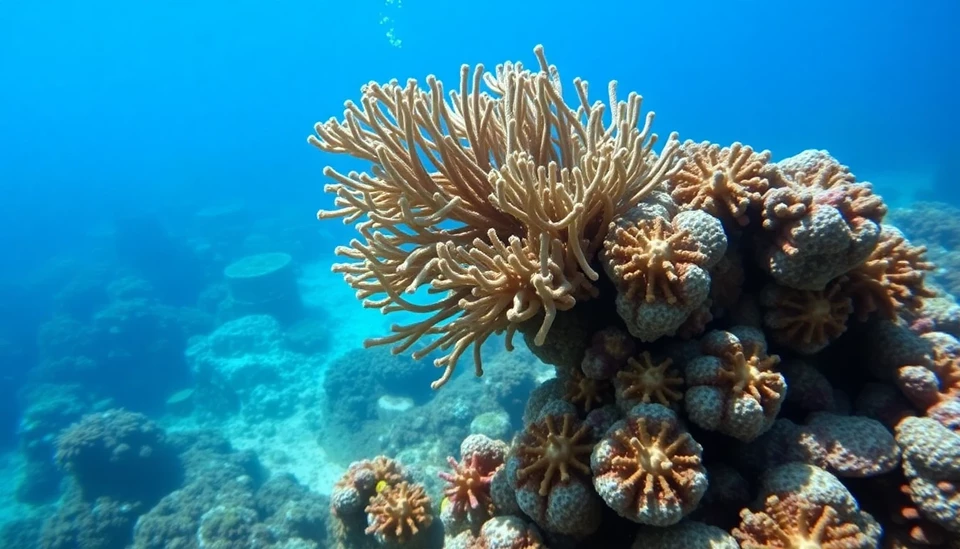
Recent studies have raised alarms about the dire state of the world’s coral reefs, with new data revealing that an overwhelming 84% of these critical ecosystems are currently facing heat stress. This phenomenon, largely attributed to climate change, poses a severe risk to marine biodiversity and the communities that rely on reefs for their livelihood.
Researchers from a collaborative effort spanning multiple environmental organizations and academic institutions conducted an extensive assessment of coral reef health. Their findings indicate that unprecedented water temperatures are wreaking havoc on these aquatic environments, which serve as vital habitats for countless marine species. The increasing frequency of marine heatwaves has exacerbated the crisis, leading to widespread coral bleaching and mortality.
Coral reefs are often referred to as the "rainforests of the sea," given their rich biodiversity. They are essential for supporting marine life, providing shelter and food for fish and invertebrates, and playing a fundamental role in coastal protection and tourism. The alarming decline in reef health could result in devastating economic consequences for communities dependent on fishing and tourism, as well as long-term ecological impacts that may take decades to recover from.
The alarming report highlights the urgency of implementing effective climate action to mitigate the warming of ocean waters. Experts emphasize the necessity for immediate global initiatives aimed at reducing greenhouse gas emissions and investing in marine conservation strategies. Without significant intervention, the risk of irreversible damage to these coral ecosystems grows significantly.
Moreover, the repercussions of this crisis extend beyond marine environments. Coral reefs are instrumental in carbon sequestration, thus playing a crucial role in regulating global climate. As these regions decline, they not only lose their ability to act as carbon sinks but also contribute to the acceleration of climate change itself. The report serves as a pivotal reminder of the intertwined nature of climate, environmental health, and human economic sustainability.
In light of these findings, there have been calls for enhanced international cooperation to safeguard coral reefs from further degradation. Experts argue that immediate protective measures can be employed, such as the creation of marine protected areas, stricter fishing regulations, and habitat restoration programs. While these efforts may not completely halt the effects of climate change, they could help bolster the resilience of coral reefs against future threats.
The comprehensive report serves as an urgent wake-up call to world leaders, urging them to prioritize the health of marine ecosystems in their climate policies. With the interconnected nature of environmental, social, and economic factors at play, proactive measures are essential to ensure the survival of coral reefs and the myriad of life forms that depend on them.
As the world grapples with the ramifications of climate change, the protection of coral reefs has never been more critical. This is a defining moment for global environmental policy, and a pivotal opportunity for nations to come together to preserve the natural treasures of our planet.
In conclusion, addressing the current crisis facing coral reefs is not just an environmental imperative; it is a necessity for the well-being of all species that inhabit Earth, including humans. Immediate action is required to avert catastrophic loss and ensure the longevity of these vital ecosystems.
### Hashtags:
#CoralReefs #ClimateAction #MarineConservation #HeatStress #Biodiversity #CoralBleaching
Author: Peter Collins




